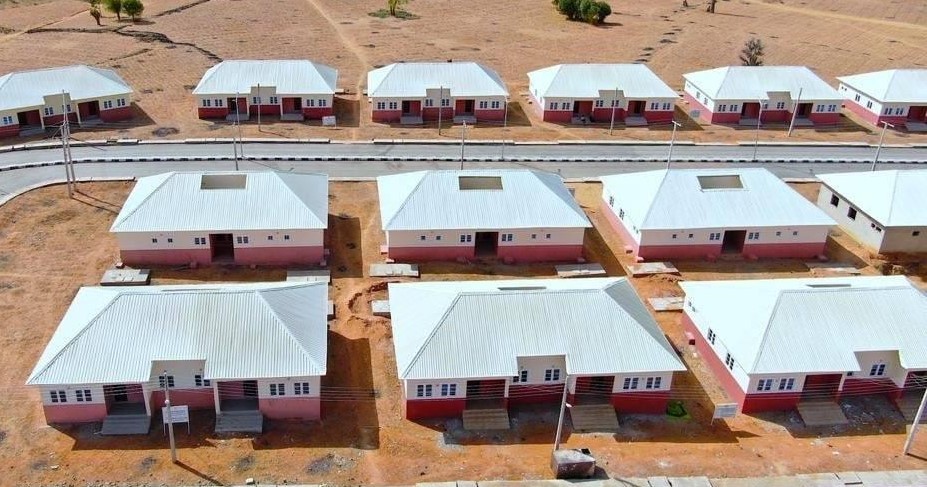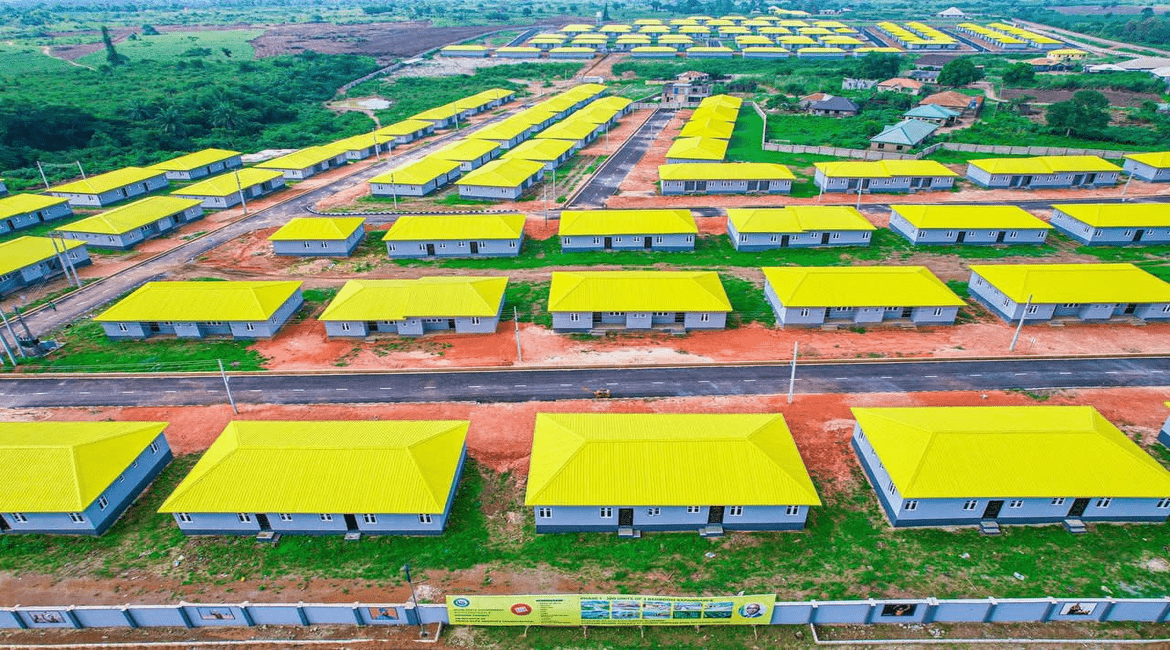susannefunk651
susannefunk651
What is a Ground Lease and what do they Mean for Investors And Landlords?

Ground leases are different things to different individuals and carry a varying set of advantages and disadvantages. Below, we look into the kinds of ground leases, what they are, and how they work. Depending on your view looking in- whether you are a property owner, residential or commercial property owner, or possible investor, a ground lease handles an entire new meaning.

In a nutshell, a ground lease (likewise in some cases called a land lease) is an agreement in between a person who owns the land and an individual who wishes to develop a residential or commercial property. The financier or residential or commercial property developer pays the landowner a month-to-month lease for the right to develop there.
Specific arrangements vary in both worth and time-frame, and the last outcome can go several ways depending upon the interests of the parties involved.
How Do They Work?
The first step is for an investor to find a piece of land they wish to establish on and approach the owner with terms. A land lease agreement hands over the right to build on the ground over a set variety of years, but all land enhancements at the end of the lease and the residential or commercial property of the landlord.
They are typically long-term leases spread out over a minimum of 50 years, suggesting the owner of the leased land has a stable earnings from the rent the developer or renter pays.
The ground lease specifies precisely who owns the residential or commercial property and who owns the land throughout the lease term. It likewise dictates who is accountable for the tax concern and any legal problems that might occur throughout the building and construction. Usually, it is the residential or commercial property owner who takes on this obligation.
Types of Ground Lease: Subordinated VS Unsubordinated
There are two types of ground leases: a subordinated ground lease and an unsubordinated ground lease. The main difference is the regards to financial obligation and what happens if a renter defaults. Generally speaking, a proprietor must promote an unsubordinated ground lease to better secure their land and residential or . However, it is easier for a designer to get funding with a subordinated ground lease.
It is far much easier to get the preparation permission and essential financing for an advancement with a subordinated ground lease. Because they do not really own the residential or commercial property, they can not provide much security needs to things go wrong. With a subordinated lease, the property owner concurs that the bank can have the very first claim, implying they take a lower priority in the chain.
If everything fails, the lending institution deserves to stop the property residential or commercial property and foreclose, selling it to settle the financial obligation. After the financial obligation is repaid, anything left over is passed to the person leasing the land. Obviously, this is dangerous, but often it is the only choice.
The obvious advantage of unsubordinated ground leases is the far less risky position the landowner discovers themselves in. In case of an occupant default, the land is secured, so the owner can not lose their residential or commercial property. The person renting land has top place in the claim hierarchy, meaning the lender can not foreclose without landlord approval.
Because of the additional defense, banks are not so fast to use financing deals to designers.
Ground Lease Fundamentals
A ground lease structure always follows the exact same basic inclusions:
– Lease terms need to be clearly detailed with an extensive account of the arrangement.
– All rights of both the property manager and the occupant ought to be talked about and verified with legal support.
– Financial conditions relating to both the landowner and residential or commercial property developer or occupant throughout of the land lease are set in stone.
– All fees are set out and concurred upon.
– The lease term (the number of years) must be figured out before anything is signed.
– What occurs if the tenant defaults? There should be no doubts in this matter.
– Insurances for the title and result at the end of the lease period must be offered. Although this varies between each lease, ground leases should consist of a prepare for the eventual end of the arrangement.
Benefits of a Ground Lease Investment
There are lots of benefits of a ground lease genuine estate financiers, particularly those thinking about developing an industrial residential or commercial property.
The Luxury of Time

Confirming a building loan and settling planning takes some time and hold-ups are not unusual. The ground lease process permits designers some breathing space to get everything organized and completed without rushing.
A normal ground lease lasts between 50 and 99 years, which is ample time to get a task on its feet. Both the residential or commercial property owner and the developer can bask in the understanding that time is on their side.
Financial Benefits for Both Parties
The residential or commercial property designer advantages by getting access to an excellent piece of land that they might otherwise not pay for; switching a substantial up-front payment for the manageable ground rent. As a financier, this is also helpful, as it suggests there is not as much money needed upfront, indicating less danger all around.
Many residential or commercial property owners and designers also come to mutually helpful financial deals associating with the later phases of the lease, but these are on a case-by-case basis.
Access to Prime Real Estate Markets
Those who are developing an industrial residential or commercial property can rent a ground area in a prime location without putting themselves into debilitating eternal dept. Commercial realty is extremely lucrative, specifically if you can work out greater rent payments from renters due to the place and market.
Rent payments from the completed commercial genuine estate residential or commercial property can repay a building loan and leasehold mortgage much faster if it remains in the best place. Securing a ground lease with a cooperative residential or commercial property owner with land right on the bullseye is the golden ticket for many industrial real estate developers.
Risks of a Ground Lease Investment
Obviously, land leases also feature threats- just like any financial investment opportunity. Several possible disadvantages come particularly with this kind of lease.
Restrictions and Limitations
Different locations have their own structure and real estate laws. Everything from the size of the building to the variety of windows can be managed by local councils and guidelines. Anybody considering purchasing a land-leased advancement must completely investigate the regional planning procedures and how most likely they are to have an influence on the success of the job.
Total Costs Over a Long-Term Period
Keeping in mind that a ground lease can last as much as almost a century, the overall cost can add up to a lot more than it would need to purchase a residential or commercial property outright. Although the lower lease paid every month is far more workable than forking out a lump amount deposit, it eventually becomes a large amount in its own right.
Keep an eye out for Reversion
Never buy an advancement on leased ground up until absolutely sure of the exact terms. Some leasehold mortgage leases state that the developers do not maintain ownership of the improvements to the land at the end of the contract.
If the business and investor put money into is going to lose control of a residential or commercial property rather than maintaining ownership, that does not bode well for potential financial returns.
There are 2 sides to every coin: the property managers who rent the ground also have a main part to play. Entering into a land lease agreement also has its ups and downs for the owners.
– Leasing ground provides a constant earnings stream for a landlord for decades on an otherwise empty piece of land without needing to do a great deal of work- what’s not to like?
– Most offers include escalation clauses that enable landowners to adjust rent and maintain control of eviction rights if necessary.
– Owners can take advantage of tax savings by leasing instead of selling. If offered outright, a property owner experiences greater tax implications associating with reported gains, which do not use in long-term lease arrangements.
– Sometimes the landowner retains a level of control in the advancement. In other words, they have a say in what modifications do or do not take place.
Cons
– In some locations, the appropriate taxes might be fairly high for landowners. Although they can experience tax advantages by not selling, having a tenant pay lease counts as income.
– If the lease contract is not well-reviewed, the property manager can end up losing control of their residential or commercial property and find themselves with little power to do anything about it.
Ground Lease Frequently Asked Questions
It depends on the arrangement between the 2 celebrations.

Yes, it can be, however just if the financier thoroughly investigates the ins and outs of the offers. Delving into a commercial lease without checking out the fine print can result in trouble further down the line. Many big store with business growth plans choose to establish through business leases, so there is no doubt about the possible a financial investment could have.

What is the difference in between a ground lease and a typical lease?
A normal lease frequently includes an already existing genuine residential or commercial property owned and developed by somebody else. In this case, you merely lease the space. Office complex or shops inside a shopping center are prime examples of how other leases work.
With a land lease, the primary difference is that you desire to construct your own space from the ground up. They are long-term and include a residential or commercial property deed and a very various set of criteria.
How long does a ground lease normally last?
A ground lease can last anywhere between 50 and 99 years.
Who owns your house developed on the leased land?
The ownership of the residential or commercial property at the end of the lease depends upon the terms of the contract. If the designer has paid the residential or commercial property taxes throughout of the lease and the landowner concurs, then they maintain ownership at the end of the lease term.
Sometimes the contract states that all enhancements to the land are gone back to the landowner when the deal ends, although, over the course of practically 100 years, arrangements are often made in between the two celebrations.

Ground leases have excellent prospective advantages for both investors and landowners, as long as the arrangements are well planned and thoroughly evaluated from both sides.
A ground lease is a formal contract between a landowner and somebody who wishes to develop residential or commercial property on that land. This arrangement usually consists of some sort of monthly lease that is paid to the landowner.



